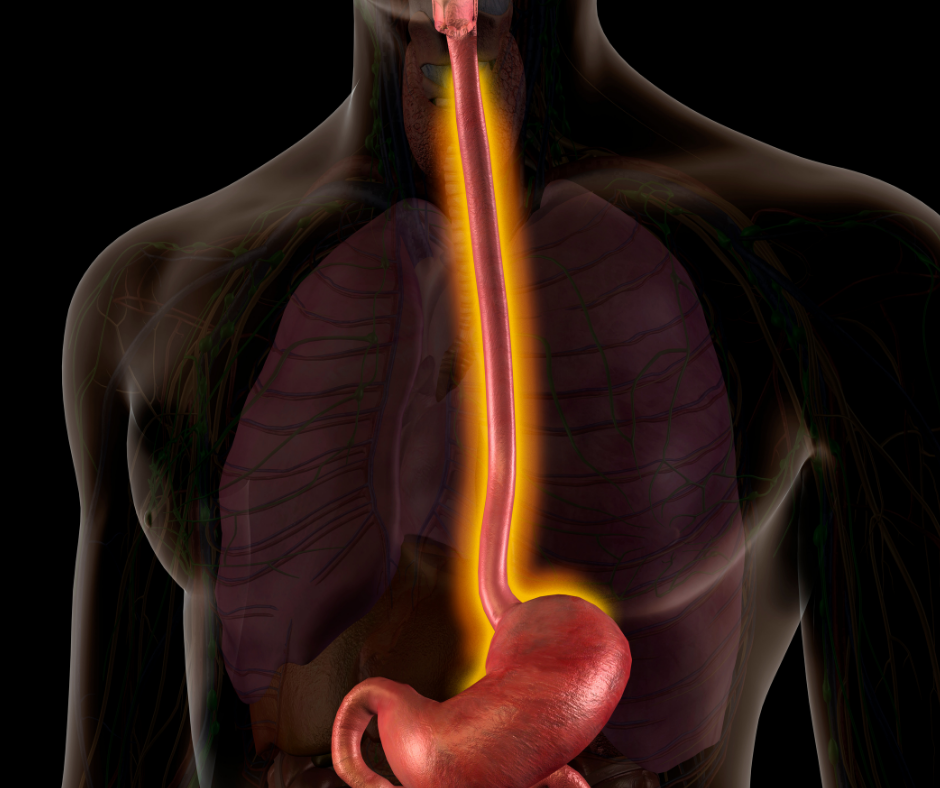The American Cancer Society expects that roughly 20,000 new cases of esophageal cancer will be diagnosed this year. Many of those cases will prove fatal if not detected and treated early.
As April is Esophageal Cancer Awareness Month, CTVS urges everyone to become educated about the symptoms associated with this devastating, but treatable disease.
The esophagus is the muscular tube that connects the throat and the stomach so that food and liquids can enter and nourish the body. Risk factors that may contribute to esophageal cancer include smoking, a history of Barrett’s Esophagus and other acid reflux disorders such as GERD (more on this later), and exposure to radiation through chest or upper abdomen treatments.
Common symptoms of esophageal cancer are:
- Sore throat
- Difficulty swallowing or the feeling of food “getting stuck”
- Unintended weight loss
- Unexplained heartburn and indigestion
- Sharp pain behind the breastbone
Our board-certified thoracic surgeons treat esophageal cancer often and effectively with cutting-edge technologies like robotic surgery to remove the affected areas through a procedure known as an esophagostomy. They are then able to reroute the healthy parts of the esophagus to the stomach.
In some cases, radiation and chemotherapy are also recommended to improve outcomes.
Another common condition we treat frequently that occurs in the esophagus and can mimic esophageal cancer with similar symptoms is GERD.
What is GERD?
Gastroesophageal reflux disease (GERD) is a condition where stomach acid flows backwards up into the esophagus. This acid backwash, or reflux, can irritate the lining of the esophagus and make eating and drinking extremely painful and challenging.
If GERD is left untreated, the acids can severely damage the esophagus and potentially pave the way for cancerous lesions to form. This means that people who suffer from chronic GERD have a slightly higher risk of developing esophageal cancer.
Factors that can lead to GERD are pregnancy, obesity, diseases of connective tissues such as rheumatoid arthritis or scleroderma, caffeine, and fatty, acidic, or spicy foods.
How is GERD treated?
Some medications may help alleviate and control chronic GERD symptoms, but board-certified thoracic surgeon Dr. Matthew Gaudet explains below how surgery can also help effectively treat it and who is the best candidate for this procedure.
- Briefly describe the Nissen procedure to treat GERD.
A Nissen Fundoplication is a surgical procedure done through the abdomen in which the top portion of the stomach is mobilized and wrapped around the lower esophagus to reinforce the lower esophageal sphincter, the body’s natural barrier to acid and stomach contents refluxing into the esophagus.
It is most commonly done through a minimally-invasive approach (5 or 6 incisions up to ½ inch in size), either with the robot or traditional laparoscopic instruments. The hospital stay is usually one night.
It is the definitive surgical treatment for GERD.
- Who is a candidate/when should a patient consider GERD surgery?
Surgery for GERD should be considered when a patient has symptoms despite optimal medical management.
Other situations which should prompt surgical evaluation include hiatal hernia (when a portion of the stomach and possibly other organs have herniated into the chest cavity from the abdomen), signs of damage caused by GERD (such as a stricture or Barrett’s Esophagus), or patients who simply prefer to have their condition treated surgically over taking lifelong medication.
- What are the benefits of this surgery?
Immediate benefits are symptom relief and improvement in quality of life.
The more long term benefit/goal is protection of the esophagus from the harmful effects of chronic reflux, potentially as serious as esophageal cancer.
It will also typically allow the patient to stop taking their acid reflux medication.
- Are there any risks/side effects?
Aside from the standard risks of general anesthesia and surgery, there are a few risks specific to the Nissen Fundoplication.
Short term risks include bleeding, unintentional damage to the esophagus, and infection in the surgical incisions or even inside the abdomen.
Longer term risks are difficulty swallowing or belching due to tightening of the wrap or even an eventual recurrence of symptoms due to “slipping” of wrap, which may require a second operation.
Dr. Gaudet says that “the best treatment plans for GERD are put together by a multidisciplinary team including gastroenterologists and surgeons, as there are other non-surgical options that may be appropriate and effective for any given patient.”
Our CTVS thoracic surgeons will always work closely with your gastroenterologist or oncologist to develop a plan of action that is personalized and best suited to you and the specifics of your GERD or esophageal cancer diagnosis.
For questions about any of our cardiac, vascular, or thoracic services, please visit ctvstexas.com or call us at (512) 459-8753 to schedule an appointment with one of our board-certified specialists.
Don’t forget to follow us on Facebook and Instagram and check our blog for regular updates.

